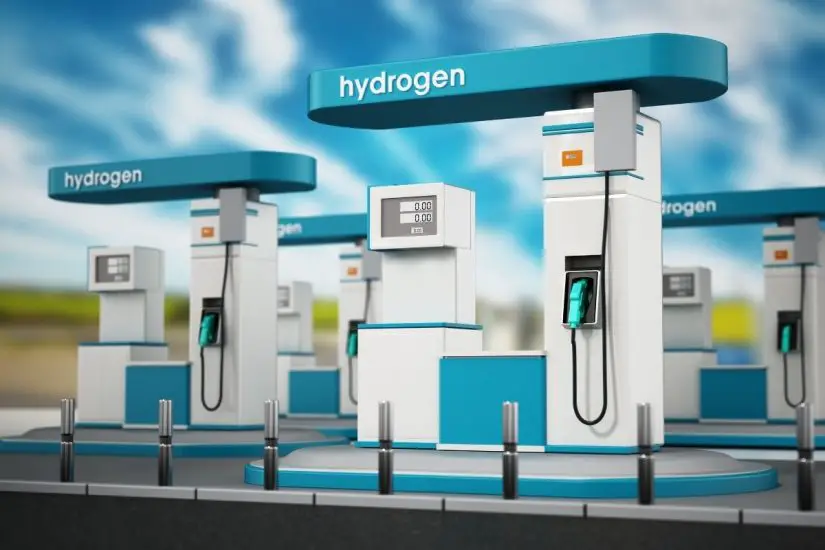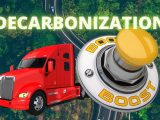
Why does Elon Musk hate hydrogen fuel cells?
May 14, 2022The electric carmaker Tesla Motors CEO has been vocal about his controversial dislike of H2 tech.
Tesla Motors CEO Elon Musk has called hydrogen fuel cells everything from “staggeringly dumb” to “silly”, but there is far from a universal agreement with his opinion.
The progress in H2 production and energy storage make many wonder why he feels this way.
Musk has been making these and similar statements for several years as the billionaire head of the electric car company has failed to see realistic potential in hydrogen fuel cells, despite the progress that has been made.
Fuel cells should be called fool sells! Such a silly choice for cars. Not great even for a rocket upper stage imo, but at least not absurd.
— Elon Musk (@elonmusk) March 11, 2021
The US Environmental Protection Agency (EPA) refers to fuel cell vehicles (FCVs) as “similar to electric vehicles … in that they use an electric motor instead of an internal combustion engine to power the wheels.” The primary difference between the two is that the electricity powering a battery electric vehicle (EV) like a Tesla car is obtained by plugging it in and storing it in the energy storage batteries. FCVs are fueled with H2 gas that is converted into electricity by the fuel cells so that it can power the motor. The only emissions they produce are water and heat.
Still, despite the similarities, Musk and others have their doubts about hydrogen fuel cells in cars.
When Volkswagen Group CEO Herbert Diess tweeted that “It’s time for politicians to accept science,” and that “Green hydrogen is needed for steel, chemical, aero … and should not end up in cars. Far too expensive, inefficient, slow and difficult to rollout and transport. After all: no #hydrogen cars in sight” last year, Musk was quick to reply in agreement.
Diess is right. Hydrogen is a staggeringly dumb form of energy storage for cars. Barely worth considering it for a rocket upper stage, which is its most compelling use.
— Elon Musk (@elonmusk) May 20, 2021
It’s clear that electric vehicles have become the more popular zero-emission passenger car. Still, there remain some major automakers that continue to move forward with the technology. Toyota and Hyundai in particular have not only continued to continue to develop the technology but have also rolled out passenger hydrogen car models.

Hydrogen fuel station update: After speaking with an associate at the TrueZero Hydrogen station, we learned that they have plans to open up 10 more stations in California this year and then another 15 new locations next year. Plus, the cost of gasoline is quickly catching up to H2, as well as lower costs are on the horizon for hydrogen. Looking at the huge steps that are being taken to produce green hydrogen through solar, wind and even geothermal are making it a green win, win in the not so distant future.
Also, let’s not forget about the the commercial sector piece of the “vehicle” pie. Major automakers from BMW Group to Daimler Truck believe that hydrogen fuel cells are the ideal zero-emission option for long-haul transport and heavy machinery, some continue to speculate that once the refueling infrastructure is in place, the interest in the technology in other areas can be countless.



 With over 15 years of reporting hydrogen news, we are your premier source for the latest updates and insights in hydrogen and renewable energy.
With over 15 years of reporting hydrogen news, we are your premier source for the latest updates and insights in hydrogen and renewable energy.
Might be the case in regards to EV. However as a long distance driver I am not going to be waiting at the refueling station for over 4 hours to fill up again. Far better for me, and those on the farm, to have a quick refuelling by using H2. Also the excess of renewable power can be transferred into H2/Ammonia for use at a later state by transportation vehicles.
Elon Musk is wrong. He has overlooked the vast gulf between the amount of hydrogen on earth compared with the amount of lithium. And hydrogen is easily recycled: just re-split the exhaust. Compression is easy: years ago I designed a compressor that used water as a piston.
Elon Musk is overlooking the important positives of hydrogen. First, lots of blue hydrogen can be produced from our abundant natural gas reserves. So much so that even burning it in internal combustion engines would makes sense. Second, and more important, our existing business model for the delivery of gasoline and diesel fuel still works for the delivery of hydrogen. Ditto for our existing natural gas pipelines. All we do is reline them with plastic inserts and send the hydrogen through. We could also build new pipelines along the same routes using existing easements.
Third, our nuclear plants can also make lots of carbon-free hydrogen since they can supply both heat and electricity.
Talking about heat, we can now make steam to drive electric turbines by concentrating sunlight to heat water.
Meanwhile, we will continue to make hydrogen using cheap electricity from our windmills and solar panels.
Elon Musk has a big ego, he likes to maintain the state of mind where he simply assumes rightness.
For any application/vehicle that needs to carry heavy cargo or have a long range, Hydrogen is the clean energy choice.
Pure EVs are not able to have enough battery capacity, and hey are too heavy when adding batteries to extend range, it becomes a diminishing-returns situation.
Hydrogen vehicles are also electric, but need only small batteries, which frees up cargo space and extends range.
Elon Musk is an egotistical buffoon, and a two-fasced liar. For decades he courted the Progressives and Greens, to sell his Tesla cars… now that he is no longer dependent on them, he is ‘coming out’ as a filthy Repubiclouse and a Con-serve-a-Thief!
he loathes H2 because it threatens his little empire. Now he is decoupling fromEVs and concentrating his erratic attention on Twitter, where he willwreak havoc with his “free speech” stunt, allowing all manner of abuse to go live… FIGURES!
Global Power Reduction, Inc. is a small start-up in Central Florida that is evolving hydrogen gas from clean, safe feed stocks that are very inexpensive.
We can show you how to have your own fuel plant that produces your fuel on-board your vehicle, or outside your home in a stationary generator.
Ken Hudson
Ride a hydrogen-powered double-deck bus along Oxford Street in London or most of the way across the City of Birmingham and you’ll realise that for large vehicles hydrogen is the answer.
Well I mean, it is the same reason for Musk and Diess cheating vs. fuel cells, because they need political desicison to veil, that they bet on a dead horse. Why?
– Rare materials: BEV – Lithium, cobalt, nickel; FCEV – Pt, but there are already 10-14 g in the exhaust treatment of ICE
– Transport of energy: It is much easier tor transport H2 around the world, and hey guys, does it makes sense to install PV in the norther US or europe, if you can get three times the energy in the subelt of the earth?
– Who pays for infrastructure: For BEV it will be the taxpayer, for H2 the oil giants, because it is there business, distribution of liquids and gases
The cost and rollout of a hydrogen infrastructure is currently being addressed by the DOE in the United States and other nations around the world. Tesla and other automobile companies are largely benefiting from the current availability of lithium even with significant cost increases in lithium as EVs start to enter the transportation market in increasing numbers. Sadly, lithium and recycling techniques will not change the less-than-optimal geological locations where large lithium reserves are found worldwide. There is simply not enough mineable lithium to replace gasoline. The cost per ton of lithium has significantly increased since Elon Musk’s hydrogen comment. As the use of lithium in EVs accelerates worldwide, all should expect more significant lithium price increases. The world would be foolish to depend on minable lithium reserves that are found in so few places on Earth. Hydrogen offers the best replacement for gasoline, and it will become less expense in the future to produce and use worldwide, not so with lithium.
It’s a competing technology for a failing manufacturer.